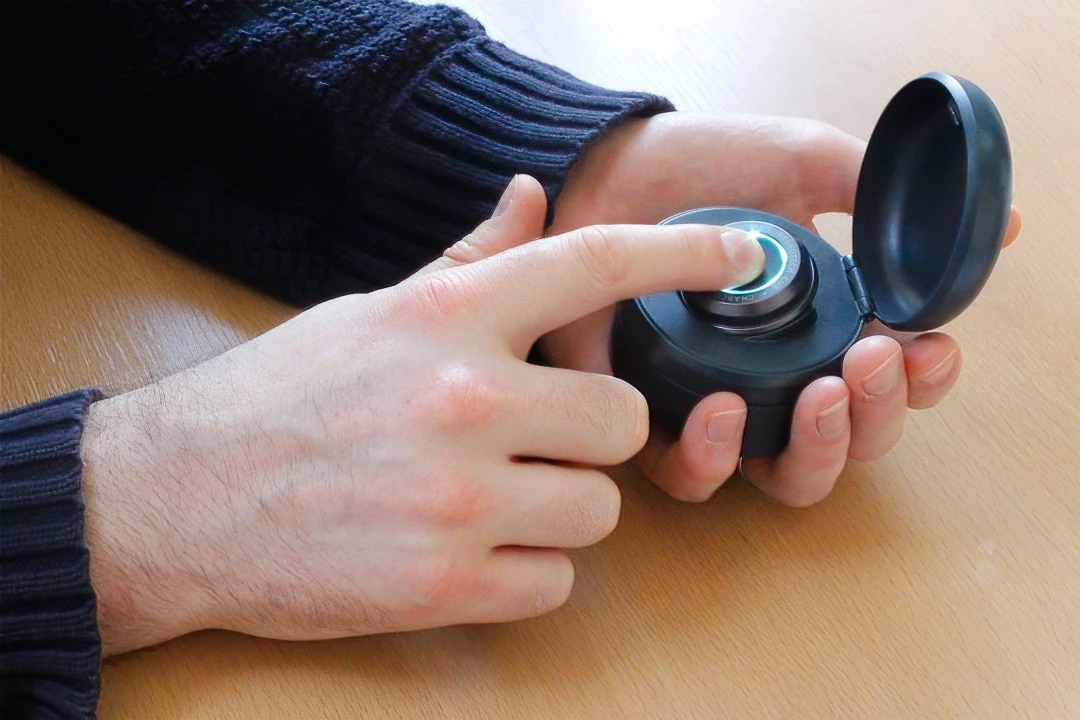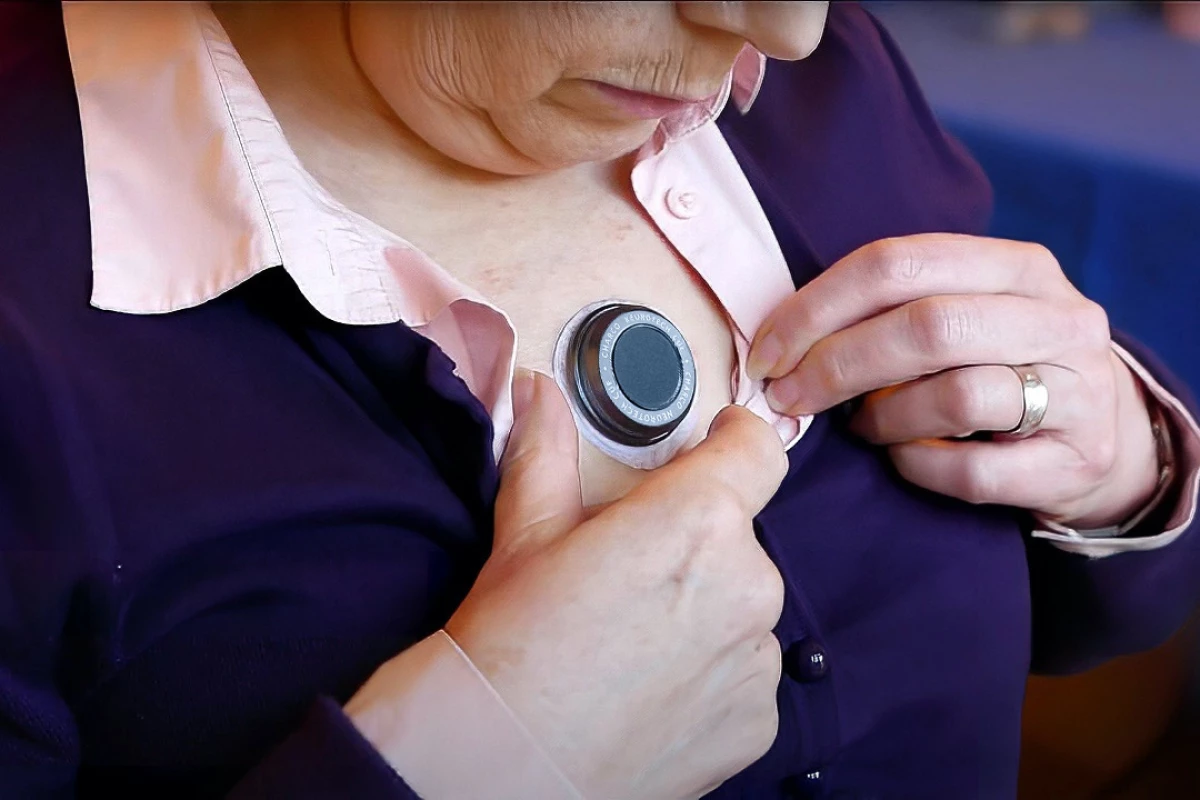Among other things, people with Parkinson's disease suffer from a slowness of movement and a stiffness of the muscles. A new wearable device may help alleviate those symptoms, by buzzing the user in the chest.
Known as the CUE1, the gadget is being developed by Imperial College London spinoff company Charco Neurotech.
The device is temporarily adhered to the skin on the user's sternum, where it uses its electric motor to deliver a rhythmic pattern of vibrations. This "focused vibrotactile stimulation" produces nerve signals that travel to the brain, where they're believed to reduce beta-frequency activity in the motor cortex and subthalamic nucleus. Excessive beta activity in these regions is thought to be responsible for motor control problems in Parkinson's patients.
Additionally, the pulsed vibrations may serve as externally generated cues that prompt the user to move. Previous research has shown that repetitive tactile, auditory or visual cues – including sounds made by a metronome – can "unlock" a Parkinson sufferer's muscles, allowing them to walk or perform other movements. We've even seen shoes that project laser lines onto the floor, cueing their wearer to step forward.

The CUE1 can function as a pushbutton-activated standalone device, although it also works with an app that can be used to adjust the strength and frequency of the vibrations. That app can additionally be utilized to provide medication reminders, and to track Parkinson's symptoms.
While small clinical trials of the device have already produced promising results, a larger-scale trial should soon be conducted in partnership with Queen Mary University of London. In the meantime, prospective buyers can join a waiting list via the company website. The planned retail price is £295 (about US$371).
Sources: Charco Neurotech, Imperial College London




